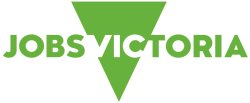Past projects
Jobs Victoria Employment Network Individual Placement and Support plus Vocational Peer Work
Orygen delivered an enhanced version of the IPS model in headspace centres we operate in Glenroy and Sunshine to include the addition of vocational peer work, a first for youth IPS programs in Australia.
IPS is the most evidence-based and effective form of employment support for people experiencing serious mental illness. Vocational peer workers are people with lived experience of mental ill-health and employment providing additional support to young people as they engage in IPS.
Over the term of the Jobs Victoria program, the team supported over 150 young people into employment in a wide variety of roles and industries. Orygen developed a vocational peer work training package informed by the peer workers in the IPS program to support other services interested in enhancing IPS with vocational peer work.

International Student Education Consultation
In 2020, Orygen consulted with international education staff and international students across Australia to identify the current challenges regarding mental health and physical safety.
Challenges which impact on international students’ mental health and physical safety include the reality of living and studying in Australia not matching expectations; financial, employment and housing stress; difficulties accessing services on and off campus; English language barriers (particularly for communicating concepts relating to mental health); experiences of bullying, harassment and experiences of racism; and perceived and actual safety risks on public transport and in the broader community.
In addition, international education staff reported the following challenges in providing services and supports for mental health and physical safety: resourcing limitations; increased demand for services and increased complexity of mental health presentations to services; lack of service awareness, particularly regarding health insurance coverage; and diversity of cultural differences and language barriers.
Read the full report
Developing online content to support international students
In 2019, Orygen received an International Student Welfare Program grant from Study Melbourne to seek input from more than 80 international students about their mental health experiences and help-seeking preferences through a series of focus groups. Their insights are being used to create online content that addresses the wellbeing challenges young people can face when studying in a new country.
Our team partnered with The University of Melbourne and La Trobe University to engage with international students from 18 different countries, some newly arrived and others who had been living in Victoria for more than a year. A mix of students living in Melbourne and regional areas were included, as well as postgraduate and undergraduate students.
Common challenges that emerged included finding accommodation and adjusting to independent living, studying in another language, the pressures of combining work and study, and homesickness.
Content for international students will be integrated into a larger online platform, MOST, currently being rolled-out into youth mental services across Victoria.
Youth Online Training and Employment System
Orygen's Youth Online Training and Employment System (YOTES) is a moderated online career support platform for young people with mental ill health. Orygen implemented a research project to develop and test YOTES in four headspace centres in Victoria from 2017–2019. The project's findings are due for publication in 2021.
The system is designed to assist young people to explore their career, education and employment opportunities in a safe online space. YOTES provides users with access to a team of online career specialists and peer workers, supporting young people to build career confidence and employability skills, while encouraging social interactions with other young people experiencing similar challenges.
Dr Magenta Simmons and Gina Chinnery led the project with colleagues Professor Mario Alvarez, Professor Eóin Killackey from Orygen and Professor John Gleeson from the Australian Catholic University.